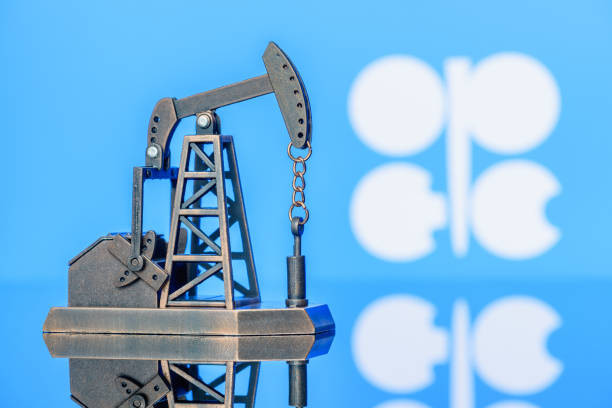
On February 1, sources from Opec+ revealed plans to evaluate the continuation of voluntary oil production reductions in March. These cuts, amounting to approximately 2.2 million barrels per day (bpd) for Q1 2023, were initiated in November, led by Saudi Arabia’s commitment to a one million bpd reduction. The decision on whether these cuts will extend beyond the first quarter will be announced in March, following the group’s routine practice for assessing voluntary reductions.
Oil Market Sentiments and Prices
Oil prices have been buoyed by the anticipation of interest rate cuts and escalating geopolitical tensions, including attacks on Red Sea shipping by the Iran-aligned Houthi group. As of Thursday, Brent crude traded above $81 a barrel, indicating market support for the current production strategy.
During an online ministerial panel meeting comprising Opec and its allies, including Russia (collectively known as Opec+), no adjustments were made to the current output policy. A source highlighted the meeting’s efficiency and the strong unity among member states, emphasizing their reiterated commitment to the group’s objectives.
Joint Ministerial Monitoring Committee’s Role
The Joint Ministerial Monitoring Committee (JMMC), responsible for overseeing the group’s policy, convened to discuss market conditions and oil production levels. Although the committee can recommend policy changes or call for a full Opec+ meeting, it opted to maintain the status quo at this session.
Should the voluntary cuts cease in April, Opec+ would reintroduce 2.2 million bpd to the market, while maintaining previously agreed cuts of 3.66 million bpd. Saudi Arabia has expressed willingness to extend the cuts if necessary, with decisions on such extensions traditionally made well in advance of their implementation.
Saudi and Russian Perspectives
In an unexpected move, Saudi Arabia directed its state oil firm, Aramco, to pause its capacity expansion plans, aiming for a maximum sustained output of 12 million bpd, a reduction from the previously targeted capacity. Russian Deputy Prime Minister Alexander Novak remarked on the oil market’s stability post-meeting, underscoring the calm market conditions following the Opec+ deliberations.
The JMMC, which convenes bi-monthly to discuss key issues facing leading Opec+ nations, including Saudi Arabia, Russia, and the United Arab Emirates, is scheduled to meet again on April 3, where future policies and production levels will continue to be in focus.
Featured image credit: William_Potter via Getty Images
